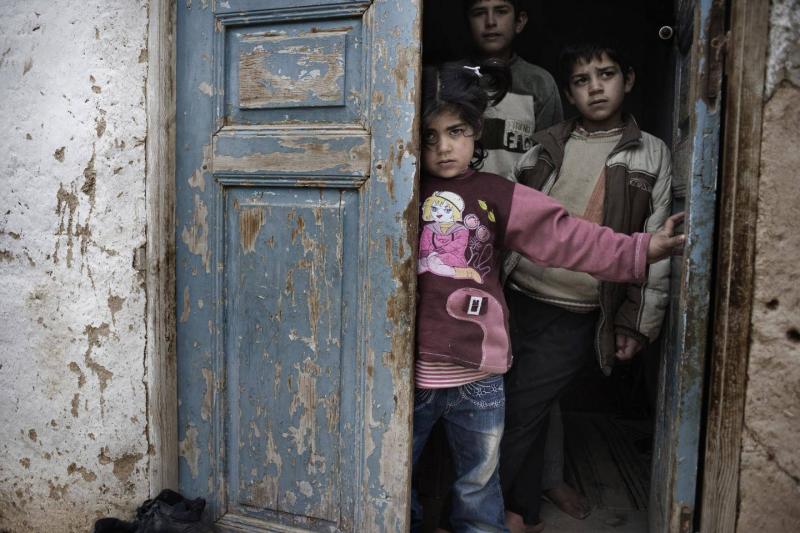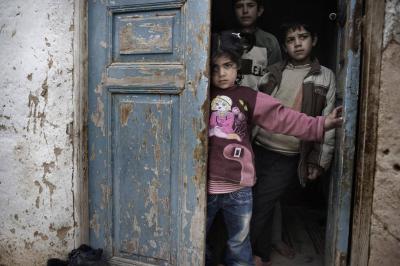A UNICEF report states that "the impact of the intertwined and severe crises in Lebanon continues to worsen, leading to an increasing deprivation of education for children and forcing many to seek work, in a desperate attempt by their families to endure amidst severe challenges and the continual decline of resources and essentials.” A rapid assessment conducted by UNICEF in November 2023 reveals a worsening situation in most aspects of children’s lives, particularly as the crisis has been expanding over the past four years with no containment in sight, along with increasing psychological burdens, especially in southern Lebanon affected by conflict, and among Palestinian children. Edward Piotrowicz, UNICEF’s representative in Lebanon, states: "This horrific crisis is destroying the dreams of thousands of children, violating their childhood, and robbing them of their right to education, happiness, and future."
More than a quarter of families (26 percent) reported that their school-aged children are not attending school. This figure has increased from the last similar assessment by UNICEF in April 2023, where it was 18 percent. Compounding the situation, dozens of schools in southern Lebanon have closed their doors since October due to violence, affecting more than 6,000 students.
The report continues: "Prices continue to rise, and with them, poverty is spreading, forcing families to resort to desperate measures to afford just one meal a day and secure basic shelter." The survey shows the following:
- The number of families sending their children (under the age of eighteen) to work has shockingly increased to 16 percent, compared to 11 percent in April.
- More than 8 out of 10 families (84 percent) have been forced to borrow money or buy on credit to obtain basic food items, marking an increase of 16 percentage points over six months.
- Spending on health care has decreased for 8 out of 10 families (81 percent), up from 75 percent six months ago.
Today, we launch the rapid assessment "Trapped in a Spiral of Collapse," which reveals worsening conditions in most aspects of children’s lives in Lebanon.
Deprivation and uncertainty significantly impact the mental health of children, with nearly 4 out of 10 families (38 percent) reporting that their children suffer from anxiety, and 24 percent stating that their children experience daily depression. Total figures in certain areas indicate that the reality is even worse:
- In southern Lebanon, 46 percent of families report that their children feel anxious, and 29 percent suffer from depression. In Nabatieh, parents report that 46 percent of children experience anxiety and 33 percent experience depression.
- About half of the Palestinian refugee children suffer from anxiety, and 30 percent from depression. Palestinian children endure cumulative emotional effects due to poor living conditions, clashes between factions in refugee camps, and uncertainty about the future, all of which jeopardize their mental health. Additionally, the images and news they follow daily about battles in Gaza and the West Bank, and about loved ones who have been displaced, injured, or killed, significantly affect them.
UNICEF urges the Lebanese government to demonstrate a clear commitment to the provisions of the Convention on the Rights of the Child and to take decisive action to support and protect all children in Lebanon and ensure their access to essential services. Neglecting children today will undoubtedly manifest in a weak and troubled future for Lebanon.
Piotrowicz states: "The daily suffering of children must stop. We must double our efforts to ensure that every child in Lebanon attends school and learns, that they remain protected from physical and psychological harm, and that they have the opportunity to grow and contribute effectively to society."




